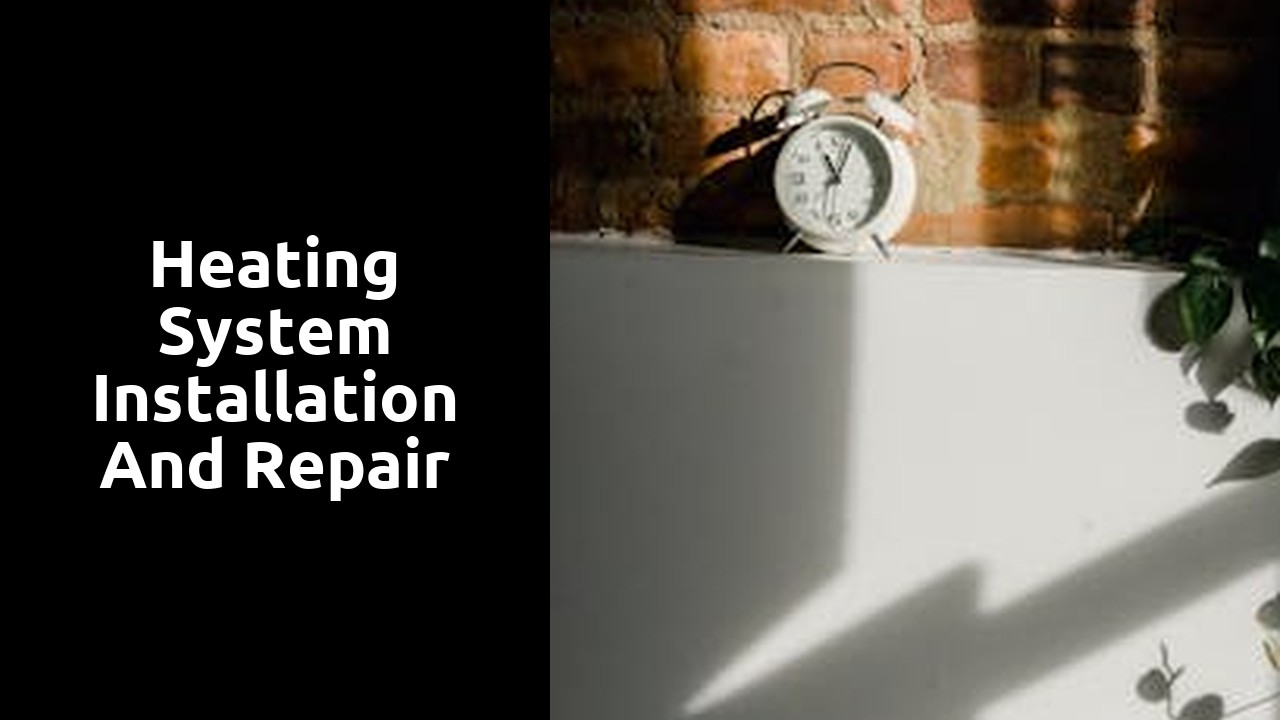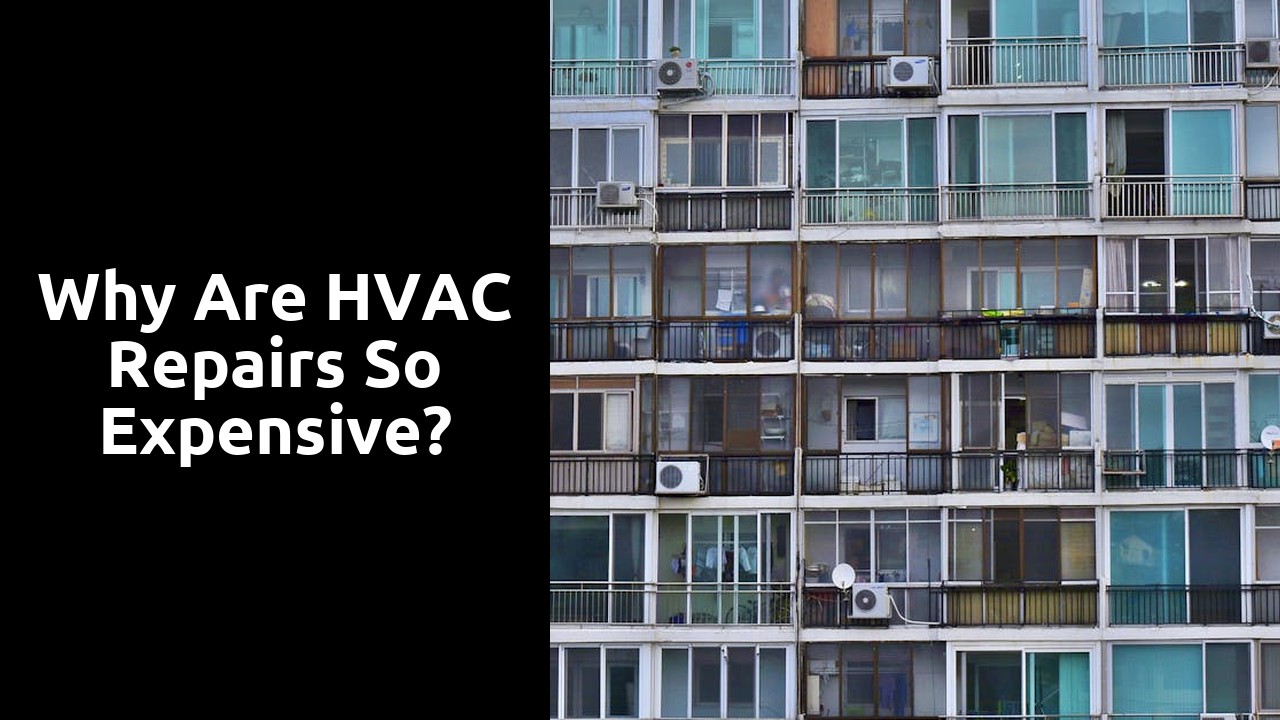
Bleeding the Radiators
To properly bleed the radiators in your home, you need a radiator key or a flat screwdriver. Start by turning off your heating system to avoid any accidents. Next, locate the bleed valve on each radiator - it's usually found at the top. Insert the radiator key or screwdriver into the valve and slowly turn it counterclockwise. You will hear a hissing sound as the trapped air escapes. Once water starts flowing steadily, tighten the valve back up. Repeat this process for all the radiators in your home to ensure optimal heat circulation.
If you encounter any difficulties or are unsure about bleeding the radiators, it's recommended to seek professional help. Contact Heating System Installation and Repair near me to schedule an appointment with a qualified technician. They will ensure that your radiators are properly bled, allowing your heating system to operate efficiently and effectively. Remember, maintaining your heating system is crucial for a comfortable and cozy home during the colder months.
Release air from radiators to improve heat circulation
When air becomes trapped in your radiators, it can hinder the proper circulation of heat throughout your home. To release this air and improve the efficiency of your heating system, follow these steps. Begin by turning off your heating system to prevent any potential accidents or injuries during the process. Then, locate the radiator furthest from the boiler as this is where air is most likely to accumulate. Using a radiator key, slowly open the valve at the top of the radiator until you hear a hissing sound. This indicates that air is escaping. Once water starts to seep out, close the valve, and repeat this process for each radiator in your home.
Properly releasing air from your radiators is essential in ensuring that your heating system operates efficiently. If you encounter any difficulties or are unsure about how to bleed your radiators, consider reaching out to professionals for assistance. You can search for "Heating System Installation and Repair near me" to find experienced technicians who can help you resolve any issues with air in your radiators. Remember that a well-maintained heating system is crucial for keeping your home comfortable during the colder months.
Checking for Leaks
When dealing with a malfunctioning heater, one crucial aspect to inspect is the presence of leaks in the system. Leaks can lead to a loss of pressure, which in turn affects the efficiency of the heating system. To address this issue, it is advised to thoroughly examine all components of the heating system. Look for any signs of moisture or water accumulation around the pipes, valves, or connections. If you detect any leaks, it is imperative to promptly repair or replace the faulty parts. For professional assistance, consider contacting Heating System Installation and Repair near me for expert guidance.
Inspect for any leaks in the heating system
Inspect for any leaks in the heating system. Regularly examining your heating system for leaks is crucial to ensure its proper functionality and longevity. If you notice any signs of leaking, such as puddles of water or damp spots around your heater, promptly address the issue to prevent further damage. Local professionals specializing in Heating System Installation and Repair near me can assist in identifying and fixing any leaks in your system before they escalate into more significant problems.
To effectively inspect for leaks in the heating system, start by visually checking all accessible pipes and connections for any signs of moisture. Pay close attention to areas where pipes are joined together or where they enter and exit the heating unit. Additionally, examine the unit itself for any visible leaks or rust that may indicate a problem. If you are unsure about how to conduct a thorough inspection or if you suspect a leak in a hard-to-reach area, it is advisable to seek assistance from professionals in Heating System Installation and Repair near me to ensure the issue is properly diagnosed and resolved.
Flushing the System
When it comes to fixing issues with your heater, one crucial step is flushing the system. Over time, sediments and debris can build up in the system, causing blockages and inefficiencies. To address this problem, perform a system flush to remove any obstructions and ensure optimal functioning of your heating system. Regular flushing can help improve the overall performance and lifespan of your heater. Consider contacting professionals specializing in Heating System Installation and Repair near me to assist with this maintenance task, ensuring that your system operates efficiently during the colder months.
To start the flushing process, turn off the power to the heater and let it cool down. Next, locate the drain valve on your heating system and connect a hose to it to drain the water properly. Open the valve and allow the water to flow out, flushing the system thoroughly. Make sure to follow the manufacturer's instructions or consult with experts in Heating System Installation and Repair near me for the best practices in system flushing. By performing this maintenance task regularly, you can prevent potential issues and keep your heater operating at its best.
Perform a system flush to remove any blockages
Performing a system flush is a crucial step in maintaining the efficiency of your heating system. Over time, sediment and debris can accumulate in the system, leading to blockages that hinder proper heat circulation. By conducting a system flush, you can effectively remove these blockages and ensure that the heat can flow freely throughout your home. To do this, you can contact professionals offering services like "Heating System Installation and Repair near me" to help you with the process.
Flushing the system is a proactive approach to prevent potential issues and maximize the performance of your heater. By booking a service for "Heating System Installation and Repair near me," you can have experts thoroughly flush out any build-up that could be causing inefficiencies in your system. This maintenance task can help extend the lifespan of your heater and keep your home comfortable during the colder months.
FAQS
How often should I bleed the radiators in my heating system?
It is recommended to bleed the radiators in your heating system at least once a year to ensure optimal heat circulation.
What tools do I need to release air from the radiators in my heating system?
To release air from the radiators, you will need a radiator key or a flat-blade screwdriver, a towel or cloth to catch any water, and a container to collect any excess water.
How can I check for leaks in my heating system?
You can check for leaks in your heating system by inspecting the pipes, valves, and connections for any signs of water or moisture. Additionally, you can look for water stains or puddles near the heating components.
Why is it important to perform a system flush on my heating system?
Performing a system flush helps remove any blockages or buildup within the system, which can improve the efficiency and longevity of your heater. It also helps maintain consistent heat distribution throughout your home.
Can I flush the system of my heating system myself, or should I hire a professional?
While you can perform a system flush on your own, it is recommended to hire a professional to ensure it is done correctly and safely. A professional will have the necessary tools and expertise to effectively flush the system without causing any damage.




